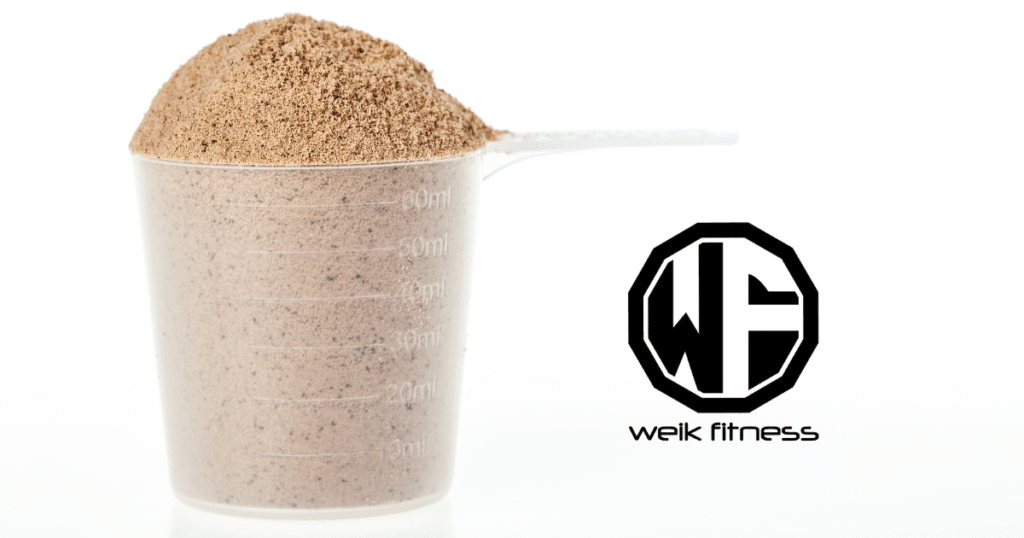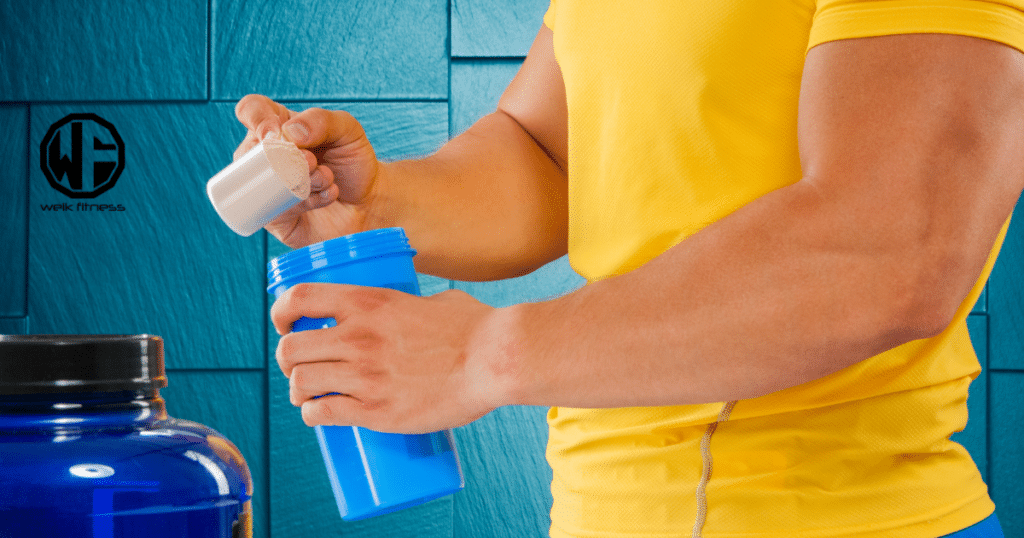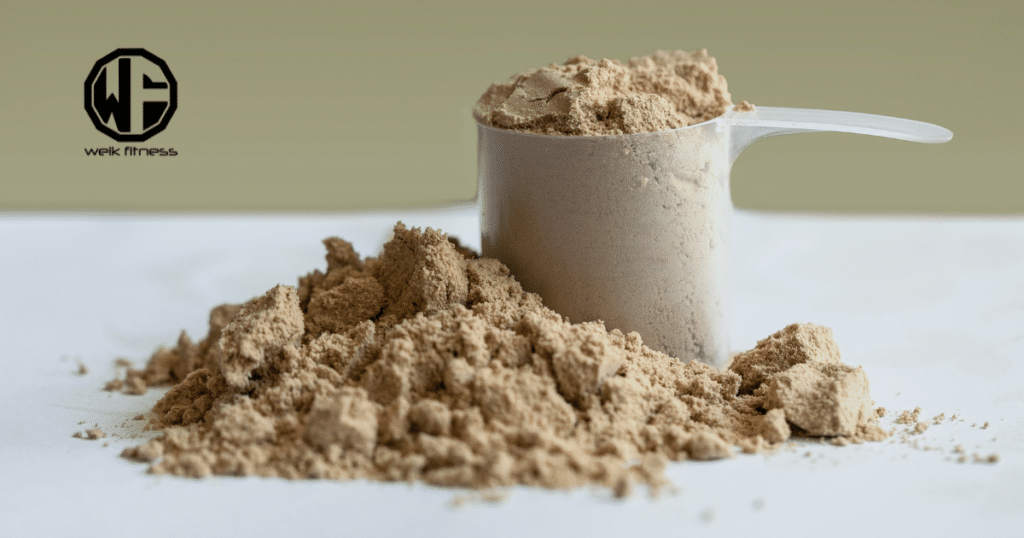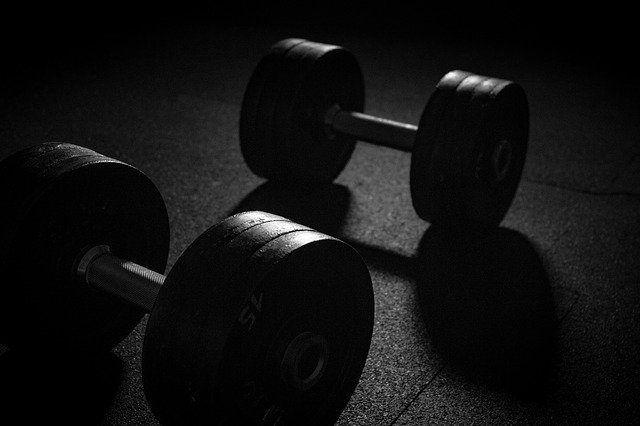The Best Protein Powder for Achieving Hardcore Gains
I’m sure you came here for one reason and one reason only… to find out what the best protein powder for hardcore gains is. Well, I have the answer for you. Ready? It’s the one you’re willing to purchase. Not what you were expecting, eh? But, it’s true. Look, I’m going to explain to you why the one you are buying right now is probably the best one for you and why you shouldn’t be as concerned about the protein powder you use (to an extent).
Disclaimer: This article is for informational purposes only and is not meant to treat or diagnose any condition. It is recommended that you speak with your doctor before starting any exercise program, changing your daily nutrition, or adding any supplements to your regimen.
Table of contents

What is Protein Powder?
Protein powder is a dietary supplement that provides a concentrated source of protein in a convenient and easy-to-consume form. It is commonly used by individuals who may have difficulty meeting their protein requirements through whole foods alone, such as athletes, bodybuilders, and people with certain dietary restrictions.
Proteins are essential macronutrients that play a crucial role in the structure, function, and regulation of the body’s tissues and organs. They are made up of amino acids, which are the building blocks of proteins. Protein powder typically contains various protein sources, with whey, casein, soy, pea, hemp, and rice proteins being among the most common.

The most popular types of protein powder include:
- Whey Protein: Derived from milk during the cheese-making process, whey is a fast-digesting protein that contains all essential amino acids. It is particularly popular for muscle building and post-workout recovery.
- Casein Protein: Also derived from milk, casein is a slow-digesting protein that provides a sustained release of amino acids. It is often consumed before bedtime to support overnight muscle recovery.
- Soy Protein: Suitable for vegetarians and vegans, soy protein is plant-based and contains all essential amino acids. It’s often used as an alternative to animal-based protein powders.
- Pea Protein: Another plant-based option, pea protein is extracted from yellow peas. It is a good source of protein and is often used by those with dairy or soy allergies.
- Hemp Protein: Made from hemp seeds, hemp protein is a plant-based option rich in omega-3 fatty acids and fiber. It may not be as high in protein content as some other sources.

Protein powder can be mixed with water, milk, or other beverages, and it’s often added to smoothies or used in recipes to boost the protein content of meals. It’s important to note that while protein supplements can be a convenient way to meet protein needs, it’s generally recommended to obtain nutrients from a variety of whole foods for a balanced diet. Always consult with a healthcare professional or a registered dietitian before making significant changes to your diet or incorporating new supplements.
Why Do We Use Protein Powder? For Hardcore Gains… DUH!
The best protein powder for hardcore gains is the one your disposable income is able to purchase on a monthly basis. Let’s not get things twisted, though. You don’t NEED a “the best protein powder” in order to achieve “hardcore gains.” We use protein powder to help us fill a void as well as a form of convenience. It’s not some mandatory piece of the equation that you can’t experience hardcore gains without. The fact of the matter is, protein powder can be looked at as an extra meal during the day.
The bigger picture is your nutrition and what you are putting in your body. The same way that a protein shake won’t make you fat… it won’t single-handedly bring you hardcore gains either. At the end of the day, it’s a cumulation of what you ate all day long. If you eat junk all day and drink a protein shake it’s not really going to do you much good nor is it going to be the cause of your weight gain (or rather body fat gain).
But if you eat smart, train hard, and use protein powder as a supplement, it can help. The key word in that is SUPPLEMENT. Protein powder is not meant to replace real whole food meals in your diet. So, don’t think you can stop eating real food and just go on a protein shake diet where that’s the only thing you consume on a daily basis.
We use protein powder to help us with our recovery from intense bouts of exercise – specifically weight training. When we lift weights, we break down the muscle fibers to allow them the opportunity to grow back bigger and stronger assuming other factors are solid such as your rest and your nutrition. There’s not truly one thing that creates hardcore gains, it’s a combination of many.
Post-workout is the most ideal time to use a protein powder[1]. A liquid form of protein following a workout can be more quickly absorbed and utilized by the body versus a whole food meal that would need to be broken down into a usable form. Therefore, if you were to ask when the best time would be to utilize what you could call the best protein powder, the answer would be post-workout to quickly shuttle the nutrients out to the muscles to start the rebuilding process.
Convenience is a huge factor, yet a crutch to so many. I’m not going to lie, it’s much easier and less time consuming to make a protein shake using a quality protein powder than it is to make a steak or chicken breast dinner. Less time, less hassle, less preparation, less clean up, and potentially MORE protein. In as little as 6-8 ounces of liquid, you could take in 20+ grams of protein and consume the entire thing in a matter of seconds. Talk about efficiency!

Along with convenience, which I mentioned above, a protein powder is great for filling protein requirement voids in our nutrition – but it shouldn’t be regularly. Let’s assume you’re a 225-pound male who is into bodybuilding and wants to continue adding size. Many bodybuilders are taking in around one gram of protein per pound of body weight. That equates to a lot of protein needing to be consumed. If they don’t have time to eat an extra meal during the day due to their busy schedule, that’s the perfect opportunity to fill the void by using a protein powder. Obviously, hitting your protein requirements each day can help you achieve the “hardcore gains” you’re working so hard to attain.
What Could Limit Your Hardcore Gains?
Several factors can potentially limit or hinder “hardcore gains” in muscle mass and strength. It’s important to address these factors to optimize your training and achieve the best results. Here are some common limitations:
- Inadequate Caloric Intake: Building muscle requires a caloric surplus, meaning you need to consume more calories than your body burns. If you’re not eating enough, especially protein-rich foods, your body may lack the necessary energy and nutrients for muscle growth.
- Insufficient Protein Intake: Protein is crucial for muscle repair and growth. If your protein intake is insufficient, your body may struggle to recover from workouts and build new muscle tissue. Ensure you’re consuming an adequate amount of protein from various sources, including whole foods and supplements if needed.
- Poor Training Program: An ineffective or inconsistent training program can limit gains. Make sure your workout routine is well-structured, includes progressive overload, and targets all major muscle groups. Consistency and intensity are key factors in muscle development.
- Lack of Progressive Overload: Progressive overload involves gradually increasing the demands on your muscles over time. If you’re not progressively challenging your muscles by increasing weights, reps, or intensity, you may hit a plateau in your gains.
- Inadequate Recovery: Muscles need time to recover and grow stronger. Overtraining or not allowing sufficient rest between workouts can impede progress. Ensure you prioritize rest days, get enough sleep, and manage stress to support the recovery process.
- Genetics: Genetics play a role in how quickly and effectively individuals can build muscle. Some people may naturally experience faster or more significant gains than others. While genetics can influence your potential, hard work, and consistency remain essential.
- Poor Sleep Quality: Quality sleep is crucial for muscle recovery and overall health. Lack of sleep can negatively impact hormone levels, including those related to muscle growth. Aim for 7-9 hours of quality sleep per night.
- Stress and Lifestyle Factors: Chronic stress, whether physical or psychological, can interfere with muscle-building processes. Manage stress through relaxation techniques, mindfulness, and a balanced lifestyle.
- Nutrient Timing: While overall daily nutrient intake is crucial, the timing of nutrients around workouts can also impact performance and recovery. Consuming protein and carbohydrates before and after workouts can support muscle growth.
- Health Issues: Certain medical conditions or hormonal imbalances may affect your ability to gain muscle. If you have concerns, it’s advisable to consult with a healthcare professional.

To overcome these limitations and maximize your gains, it’s essential to adopt a holistic approach that includes a well-balanced diet, an effective training program, adequate rest and recovery, and lifestyle management. Regular assessments and adjustments to your plan, based on progress and individual responses, can help optimize your muscle-building journey. If you have specific concerns or goals, consider working with a qualified fitness professional or nutritionist for personalized guidance.
How Does Protein Powder Cause Hardcore Gains to Be Made?
Protein powder itself doesn’t directly cause “hardcore gains.” Instead, protein powder is a convenient and efficient way to supplement your protein intake, which is crucial for muscle growth and repair. Achieving “hardcore gains” typically involves a combination of factors, including a well-structured workout routine, sufficient caloric intake, proper macronutrient distribution, and consistent effort over time.
Here’s how protein powder can contribute to muscle growth and support gains:
- Muscle Repair and Growth: After intense physical activity, especially resistance training or weightlifting, muscles undergo micro-tears. Adequate protein intake is essential for repairing and rebuilding these muscles. Protein contains amino acids, the building blocks of muscle tissue. Consuming protein powder, particularly after a workout, can provide a quick and convenient source of amino acids to support the recovery and growth of muscles.
- Convenience and Accessibility: Protein powder offers a quick and easy way to increase protein intake without the preparation time required for whole foods. This can be especially beneficial for individuals with busy schedules or those who find it challenging to consume enough protein through regular meals.
- Timing and Bioavailability: Consuming protein powder around the time of a workout, particularly post-exercise, can be advantageous. During this time, the body’s sensitivity to protein intake is heightened, and the nutrients are absorbed more efficiently. Whey protein, in particular, is known for its fast absorption rate, making it a popular choice for post-workout supplementation.
- Protein Synthesis: Protein synthesis is the process by which the body builds new proteins, including muscle proteins. Consuming an adequate amount of protein, either through food or supplements like protein powder, supports protein synthesis. This process is essential for muscle repair, growth, and overall adaptation to training.

It’s important to note that while protein is a critical component of muscle development, other factors play a role as well. These include a well-rounded diet with sufficient calories and carbohydrates, proper hydration, and a consistent and progressive resistance training program. Individual factors such as genetics, training intensity, and overall lifestyle also contribute to the effectiveness of a muscle-building regimen.
Take a Peek at Your Nutrition if You Want Hardcore Gains
This is an area you should be focusing on the most. I’m going to keep it 100 with you. Not one single of “the best protein powder” on the market is going to give you hardcore gains. It’s just not possible. It’s a very small piece of what it takes to put on quality lean muscle gains.
Related Article: The Best Protein Powder on Amazon [Top 9 Edition]
As you know, your caloric intake and the ratio of macronutrients you consume will determine your progress and success (or failure). If you have a solid nutrition plan in place, you’re setting yourself up to add the quality mass you want. But, first and foremost, you need to look at the whole food sources you are consuming for protein.

Other than using what you consider to be the best protein powder post-workout, look to see if you should be taking in another meal during the day to hit your daily macro numbers. If so and you don’t have time for another meal or you simply don’t have a meal accessible and you’re in a jam, mix up the protein powder in water and you’re good to go.
What Should You Look for in the Best Protein Powder for Hardcore Gains?
There are a few key pieces you should look for in order to purchase the best protein powder for hardcore gains or whatever your goals may be.
1. Quality and Type
What type of protein do you need can depend on your goals. If you want a slow-digesting protein, look for a casein. If you want a fast-digesting protein look for an isolate or hydrolyzed protein source. Want something in the middle? A whey concentrate will do the trick.
If I were to give you a recommendation as to what to purchase if you are just starting out and looking for the best protein powder for hardcore gains, I would start with a whey concentrate and see how you respond. You can always move up to an isolate or hydrolyzed option if you find the concentrate does not suit your needs or it doesn’t agree with your system (some protein powders may give you digestion issues, gas, and bloating – each individual is different).
As with any type of purchase, generally the higher the quality of the product the more money it will cost you. For that reason, it’s also good to know if what you are buying is worth the money – which leads us to our second point.
2. Value
Are you actually getting what you “think” you’re getting? You can do a quick calculation to figure out the percentage of protein per serving in your tub. To do this, simply fill in the pieces to the equation below and solve:
(Grams of protein per serving x 100) / Serving size in grams
The higher the percentage, the better the value. For instance, if you plugged in a powder and you got 50%, then you know that half of what you’re taking isn’t protein and could be fillers. On the other hand, if you did the math and the number was 75%, that would provide you with a much better value and yield making it more worth your money.
3. Mixability
How easily does the protein mix in liquid? Unfortunately, this point as well as the next you won’t know the answer until you actually purchase the product. When you dump the protein powder into a shaker bottle, does it easily dissolve after a few shakes or does it clump up leaving you with nothing more than utter frustration?

When you put it in a glass and stir it with a spoon, does everything dissolve? Figure out how you plan on making your shakes and check the mixability. There’s honestly nothing worse than drinking a protein powder that is full of clumps that never dissolved that you now end up chewing (nasty) or swallowing them whole.
4. Taste
This is a biggie for everyone and we are going to button things up with this point. If you don’t like a flavor, you’re less likely to continue using it. If you’re new to supplements, that then also makes you question if ALL products taste that way. Find a brand and flavor you enjoy and stick with it. Try new things if you want, but know that in the end, you’re rolling the dice just to find out if you like/dislike the product/flavor.
References:
- Aragon, A. A., Schoenfeld, B. J. (2013). Nutrient timing revisited: is there a post-exercise anabolic window? Journal of the International Society of Sports Nutrition. 10:5.


*Disclosure: This article may contain affiliate links or ads, which means we earn a small commission at no extra cost to you if you make a purchase through these links. These commissions help support the operation and maintenance of our website, allowing us to continue producing free valuable content. Your support is genuinely appreciated, whether you choose to use our links or not. Thank you for being a part of our community and enjoying our content.
PLEASE CONSIDER SHARING THIS ON YOUR SOCIAL MEDIA TO HELP OTHERS LEARN MORE ABOUT THIS TOPIC. SIMPLY CLICK BELOW!

